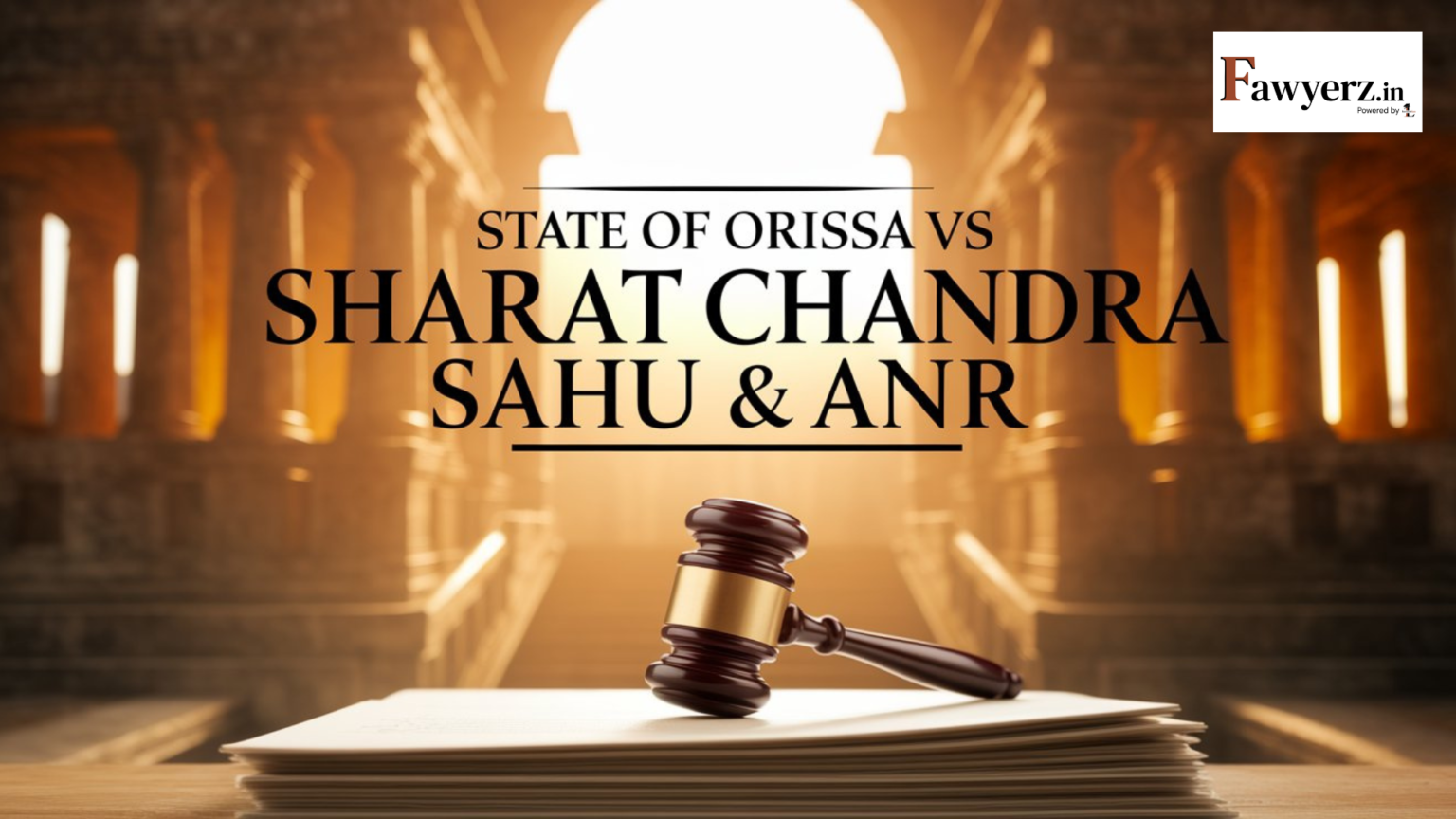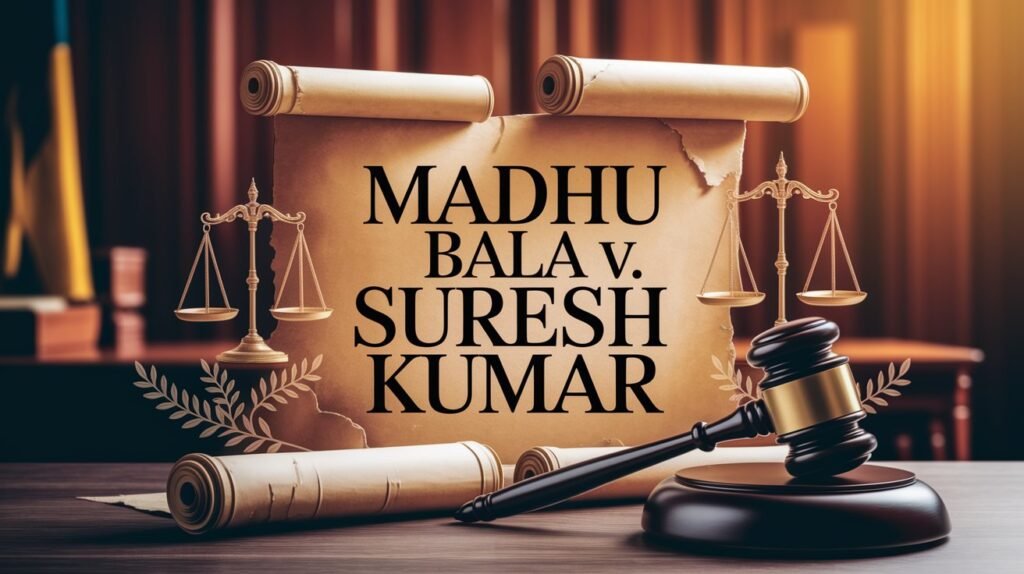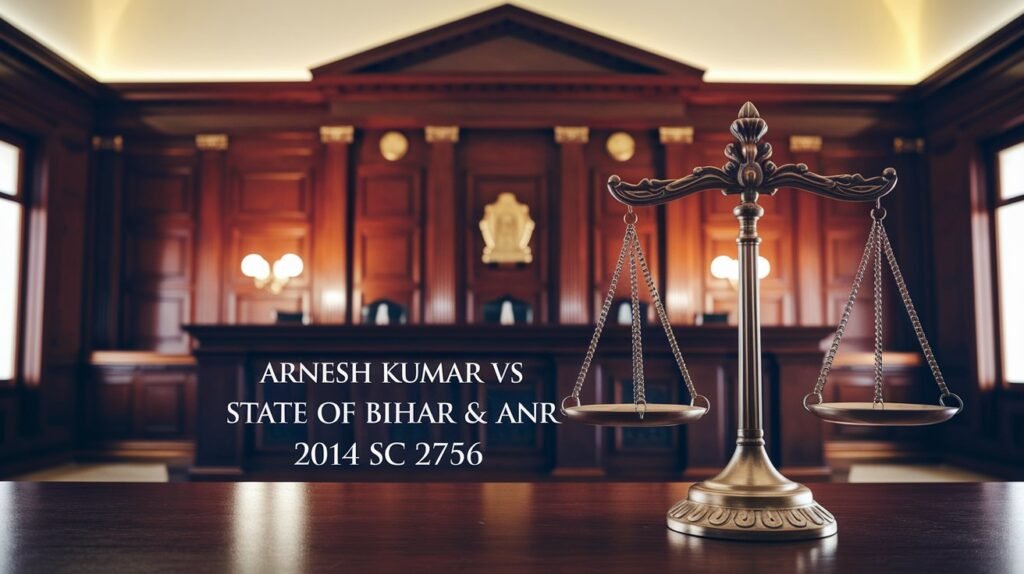State Of Orissa vs Sharat Chandra Sahu & Anr 1996 (Case Summary)

The landmark case State of Orissa vs Sharat Chandra Sahu & Anr examines the interplay between procedural requirements when offences arising from the same set of facts include both cognizable offences, which could be investigated by the police without prior approval from a Magistrate, such as Section 498A IPC (cruelty to a wife), and non-cognizable offences, which require prior Magistrate approval for investigation, such as Section 494 IPC (offence of bigamy).
Table of Contents
ToggleFacts of State of Orissa vs Sharat Chandra Sahu
- The complainant, a wife, lodged a complaint with the Women’s Commission, alleging that her husband had solemnized a second marriage and subjected her to cruelty for dowry, constituting an offence under Section 494 IPC and 498A IPC.
- The Women’s Commission, upon receiving the complaint, forwarded it to the police, who proceeded to register a case and subsequently filed a charge-sheet before the Sub-Divisional Judicial Magistrate.
- The Magistrate, upon perusal of the charge-sheet, framed charges against the accused under Sections 494 and 498A IPC.
- Being aggrieved, the accused approached the High Court of Orissa, challenging the charges framed. The Court partially allowed the Quashing petition of the Accused, quashing the charge under Section 494 IPC. However, the High Court upheld the charge under Section 498A IPC.
- The State of Orissa appealed to the Supreme Court, contesting the quashing of the charge under Section 494 IPC.
Issues Framed
- Whether the High Court was justified in quashing the charge under S.494 IPC while maintaining the charge under S. 498A?
- Whether the High Court erred in its interpretation of Section 198(1) of the Code of Criminal Procedure by not considering its interplay with Section 155(4) of the same Code when a case involves both cognizable and non-cognizable offences?
Subordinate Court Judgment
The Hon’ble High Court of Orissa held that the charge under Section 494 IPC could not be sustained, as Section 198(1) CrPC mandates that offences under Chapter XX of the IPC must be prosecuted through a complaint filed by the aggrieved person or a legally authorized representative. Since the wife had not personally filed the complaint but had approached the Women’s Commission, which forwarded it to the police, the Magistrate’s cognizance of Section 494 IPC was legally invalid. However, the High Court upheld the charge under Section 498A IPC, as it is a cognizable offence, permitting police intervention and investigation irrespective of the mode of initiation.
Judgment of State of Orissa vs Sharat Chandra Sahu
The Court examined Sections 494 and 498A of the IPC, along with Sections 198(1) and 155(4) of the CrPC, emphasizing their interplay in assessing the legality of cognizance and investigation.
The Hon’ble Supreme Court scrutinized the procedural framework governing cognizance and investigation of cases involving both cognizable and non-cognizable offences. The Court particularly emphasized on Section 155(4) CrPC, which provides that if a case involves at least one cognizable offence, the entire case is to be treated as cognizable, thereby enabling the police to investigate all offences arising from the same facts. Since Section 498A IPC is a cognizable offence, the police were lawfully empowered to investigate the entire case, including the non-cognizable offence under Section 494 IPC.
The Supreme Court referred to its decision in Preveen Chandra Mody v. State of M.P., wherein it was held that when an investigation is conducted concerning a cognizable offence, the police are not precluded from investigating any associated non-cognizable offences arising from the same set of facts and incorporating them into the charge-sheet.
Applying this principle, the Court reasoned that since the allegations against the accused included both a cognizable offence (Section 498A of IPC) and a non-cognizable offence (Section 494 of IPC), the High Court erred in isolating Section 198(1) of CrPC without considering the overriding effect of Section 155(4) of CrPC. Section 155(4) of CrPC ensures that once an investigation is validly initiated in respect of a cognizable offence, the police are empowered to probe all associated offences, even if they are otherwise non-cognizable in nature. Consequently, the charge under Section 494 of IPC was sustainable based on the police report, and the High Court’s order quashing it was legally unsustainable.
The Hon’ble Supreme Court allowed the appeal preferred by the State of Orissa and set aside the judgment and order dated 3rd May 1995, passed by the High Court, to the extent that it quashed the charge framed under Section 494 IPC and the proceedings arising therefrom. The Supreme Court directed the learned Magistrate to proceed with the trial and ensure its expeditious disposal.
The Court held that when a case involves both cognizable and non-cognizable offences stemming from the same set of facts, the procedural requirements under Section 198(1) CrPC for taking cognizance of the non-cognizable offence are deemed to be satisfied by the legal fiction created under Section 155(4) CrPC. Consequently, the Magistrate was competent to take cognizance of the offence under Section 494 IPC based on the police charge-sheet.





